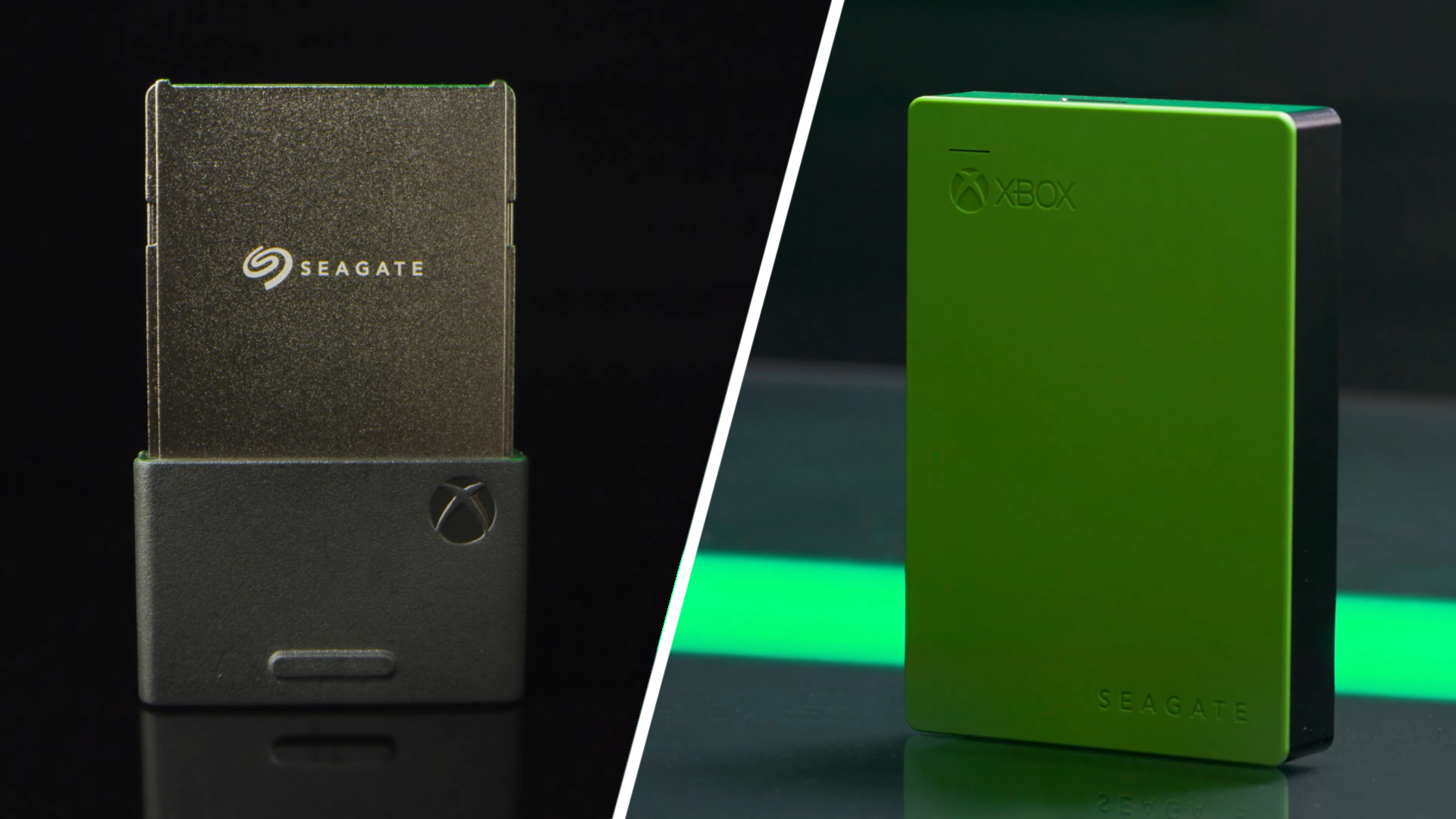
Sign up for breaking news, reviews, opinion, top tech deals, and more.
You are now subscribed
Your newsletter sign-up was successful
Growing your Xbox Series X or Xbox Series S storage capacity is a wise move. Heck, it might even be a necessary move given the relative size of games in this latest generation’s catalog and the downloadable selection provided by Xbox Game Pass. And that’s not even counting the previous generations’ libraries as many original Xbox, Xbox 360, and Xbox One games that can be played via backwards compatibility.
As a result, the console’s own storage will likely come under strain after you’ve installed just a handful of games. Extra storage will give precious breathing room, but with more options than ever before coming in this generation, Xbox users may often find themselves trying to come down on one side of the expansion card vs external hard drive fence.
The Xbox Series consoles introduced a bespoke storage solution that plugs in externally to the console but has an interface that connects directly to the motherboard of the machine. This is the long oblong port on the console’s rear, and it houses the official Expansion Card storage. However, you can also still use a regular USB-connected Xbox external hard drive or SSD. But which is best, and which should you buy? We’re here to talk you through the main characteristics, benefits, and drawbacks of each to help you find out which is best for your setup.
Xbox expansion card vs external hard drive - Use cases
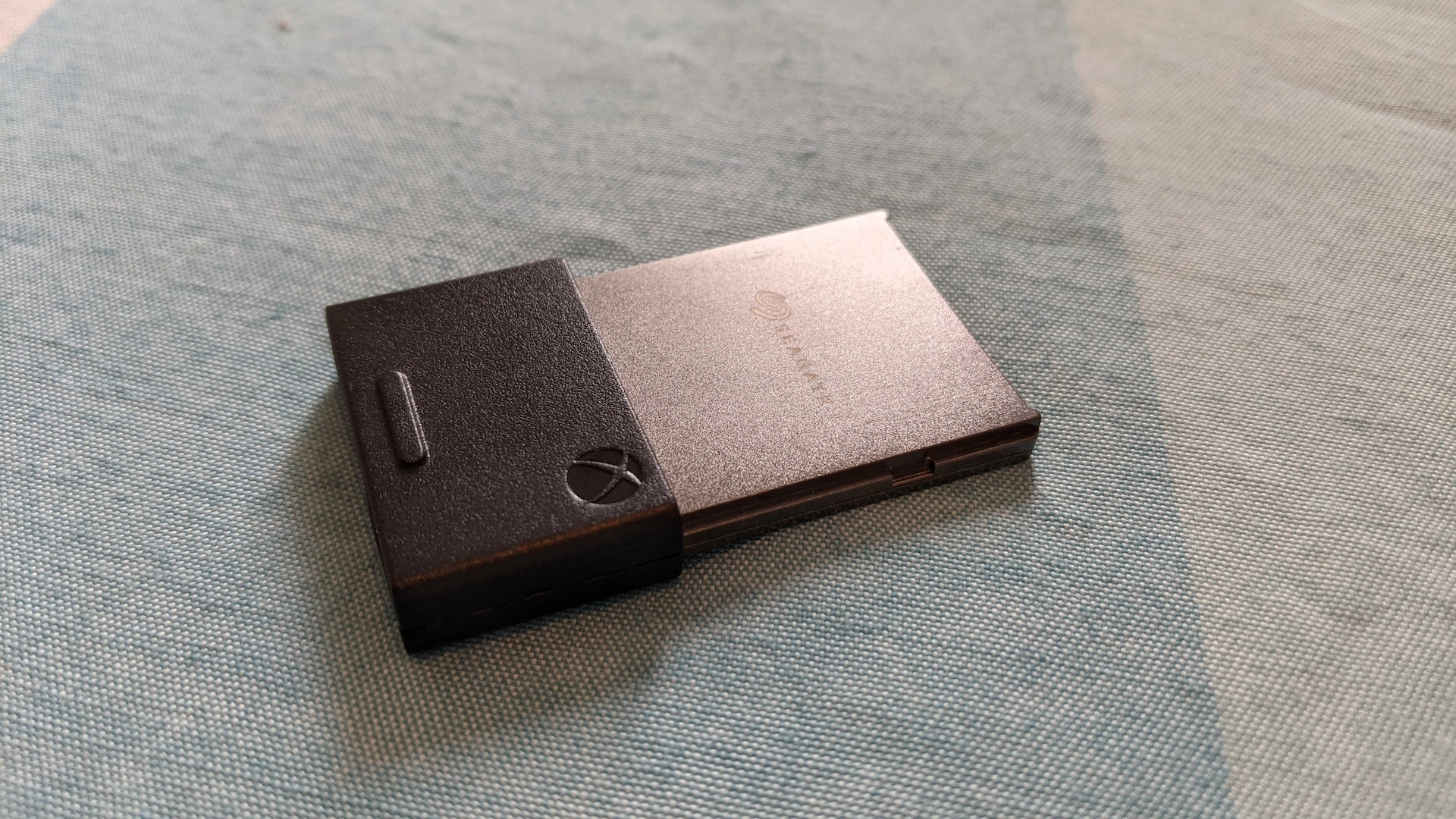
In terms of how you can deploy them, an Xbox expansion card and an external hard drive are similar. However, there is one key difference in that you can’t play Xbox Series X games (or Xbox Series S titles) from an external hard drive or play games that have been optimized for the current generation of consoles.
This is offset a little bit by the fact you can store both of those types of games on an external drive, helping you make room on the console itself, but it is the key difference worth remembering. On the other hand, there are no such limitations with the two official Xbox Expansion Cards (the WD Black C50 and Seagate’s Storage Expansion Card) the expansion card and these can be used to both store and play any Xbox game.
In terms of portability, both are superb options to take on the go or between devices. Naturally, you can only take the official expansion card to another Xbox Series console given its bespoke design. A USB external hard drive can be plugged into either a Series machine or an older Xbox One if you have that as a secondary device or at a friend's place - though you’ll have to factor in the above differences if you’re going between different generations of console.
Xbox expansion card vs external hard drive - Performance
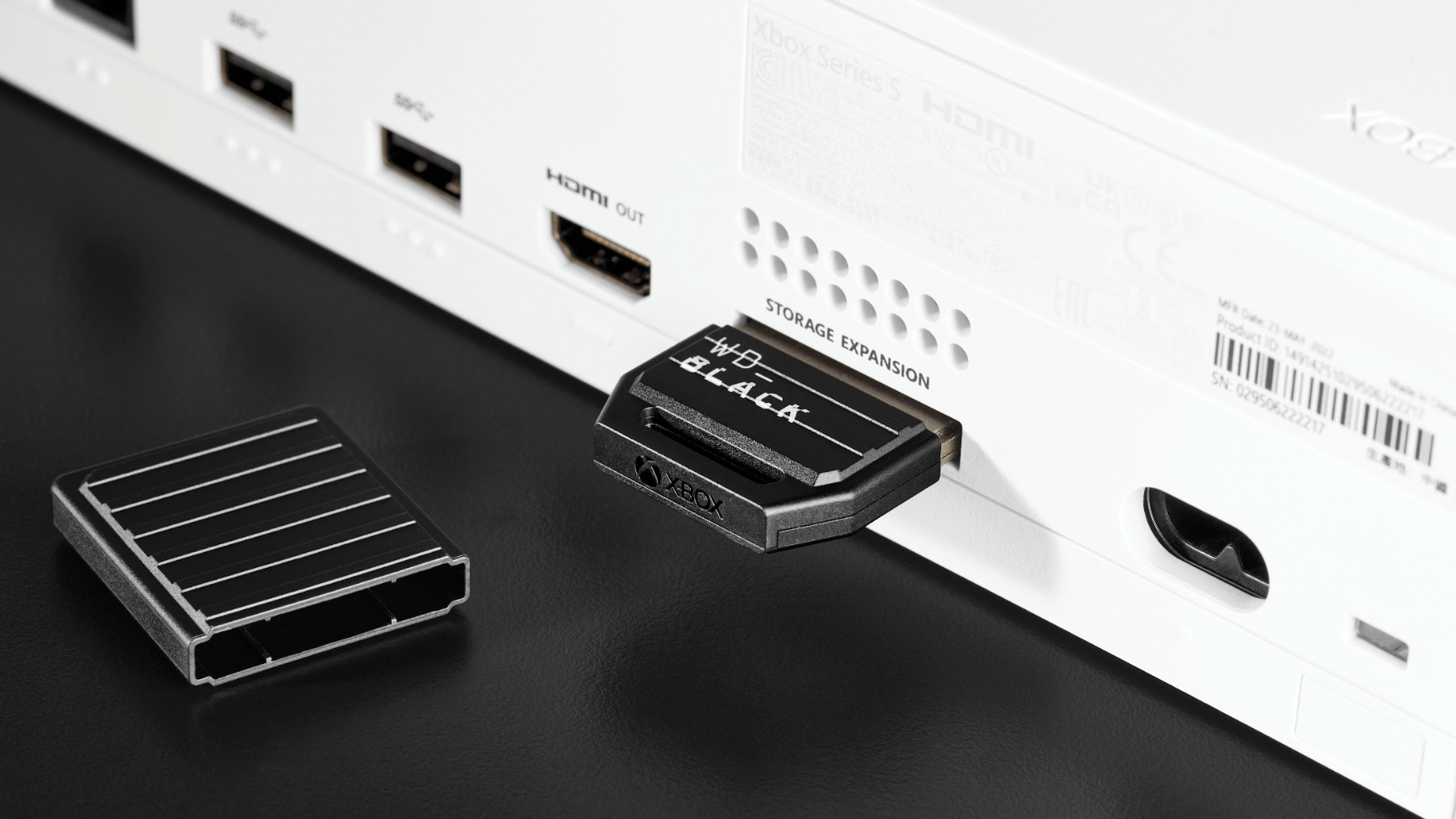
Slotting directly into the Series X or Series S motherboard and the consoles' Xbox Velocity Architecture, the WD Black C50 or Seagate Storage Expansion Card official expansion card behaves identically to the console’s own in-built SSD storage. This means you’ll get superior speeds of game load times and file transfer times with virtually no lag or delay that even the best USB external hard drives can’t hold a candle to.
Sign up for breaking news, reviews, opinion, top tech deals, and more.
An external hard drive, by comparison, will offer slower speeds. This is particularly the case with older external HDDs, and even though newer external SSDs are impressively quick, they still won’t be as fast as an expansion card.
Given that the only games you can play off of a USB external hard drive are older, non-optimized games, this may be an acceptable trade-off. Whereas if you want to ensure you have the speed, as well as the capacity, to play the latest games from your storage solution with barely any dips in performance then expansion cards are the way forward and won’t be compromised.
Xbox expansion card vs external hard drive - Price & Value
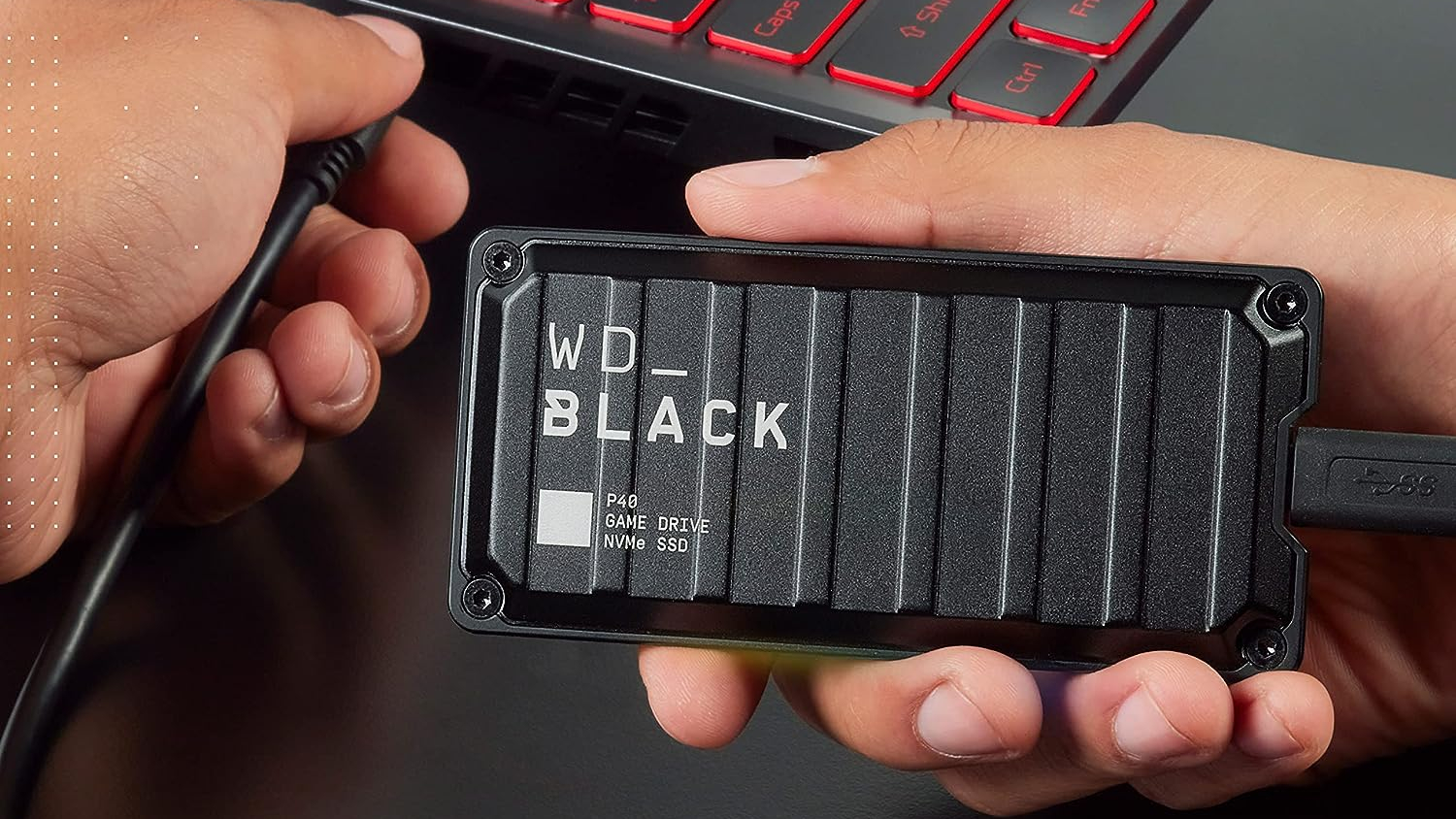
Given its bespoke design and console port, the expansion card is one of the priciest Xbox Series X|S accessories. There are only two manufacturers on the market in Seagate and WD Black so we’re not exactly swimming in options, with brands slashing prices to get your attention and cash.
Cutting to it, the 1TB options from Seagate and WD Black retail for $199.99 / £179.99 and $149.99 / £149.99 respectively. While neither are total strangers to price cuts, especially around big sales periods like Black Friday and Amazon Prime Day, this ratio of currency-to-storage is a hurdle.
For the same money, you can easily get 5TB of WD Black external HDD storage in the form of the P10 model, for example. That value for money is very strong when it comes to HDDs with something like the ever-reliable and popular WD My Passport HDD only demanding around $60 / £50 for 1TB of storage.
External SSDs are much closer to the pricing of the expansion cards and don’t offer as attractive a value proposition - a 1TB WD Black P40 external SSD retails for $129.99 / £149. At that price, the brand's own C50 expansion card is always going to be better value. Sometimes it’s the non-gaming-focused external SSDs that offer terrific value here. For example, the 2TB WD My Passport SSD retails for $179.99 / £152.99 (and can also be had for much less with deals) so would offer solid value.
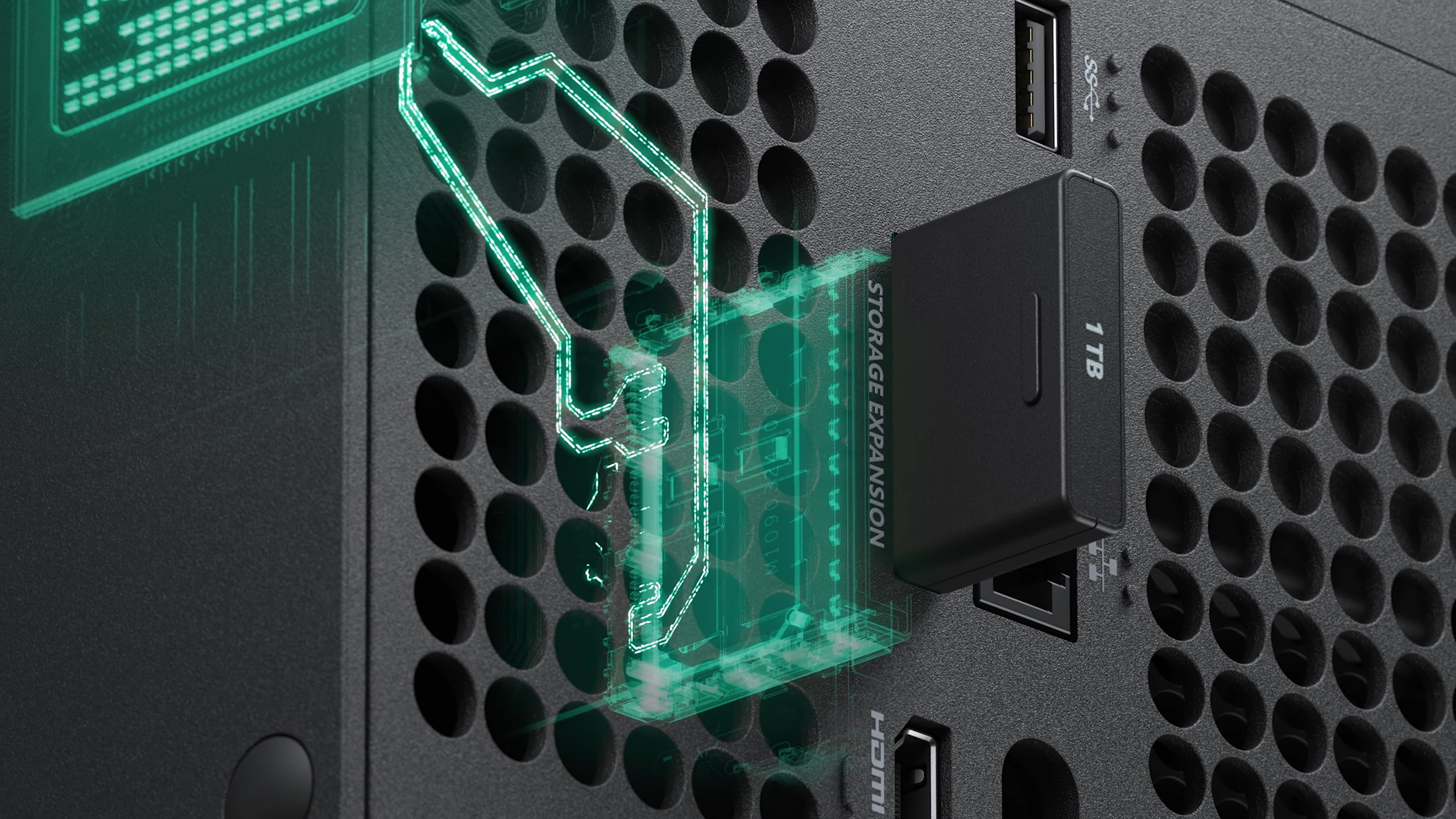
It’s worth noting that the WD Black C50 tops out at 1TB, and the Seagate Storage Expansion Card max’s out at 2TB capacity, which also sees the cards climb to exceptionally high prices - $359.99 / £339.99 for the Seagate 2TB model. External USB hard drives, however, can offer far greater capacities - the Xbox Series and Xbox One consoles both support external drives of up to a massive 16TB. If you’re a Game Pass stalwart, then the capacities offered here might be the better bet.
As a result, the difference in price is stark, but so is the value proposition. If capacity is your priority then the value for money that external HDDs offer is incredibly attractive, however, the overall performance of the expansion cards (particularly at that 1TB mark) does go a long way to justifying the higher price tag, and offers strong value for something that performs excellently.
Xbox expansion card vs external hard drive - Verdict
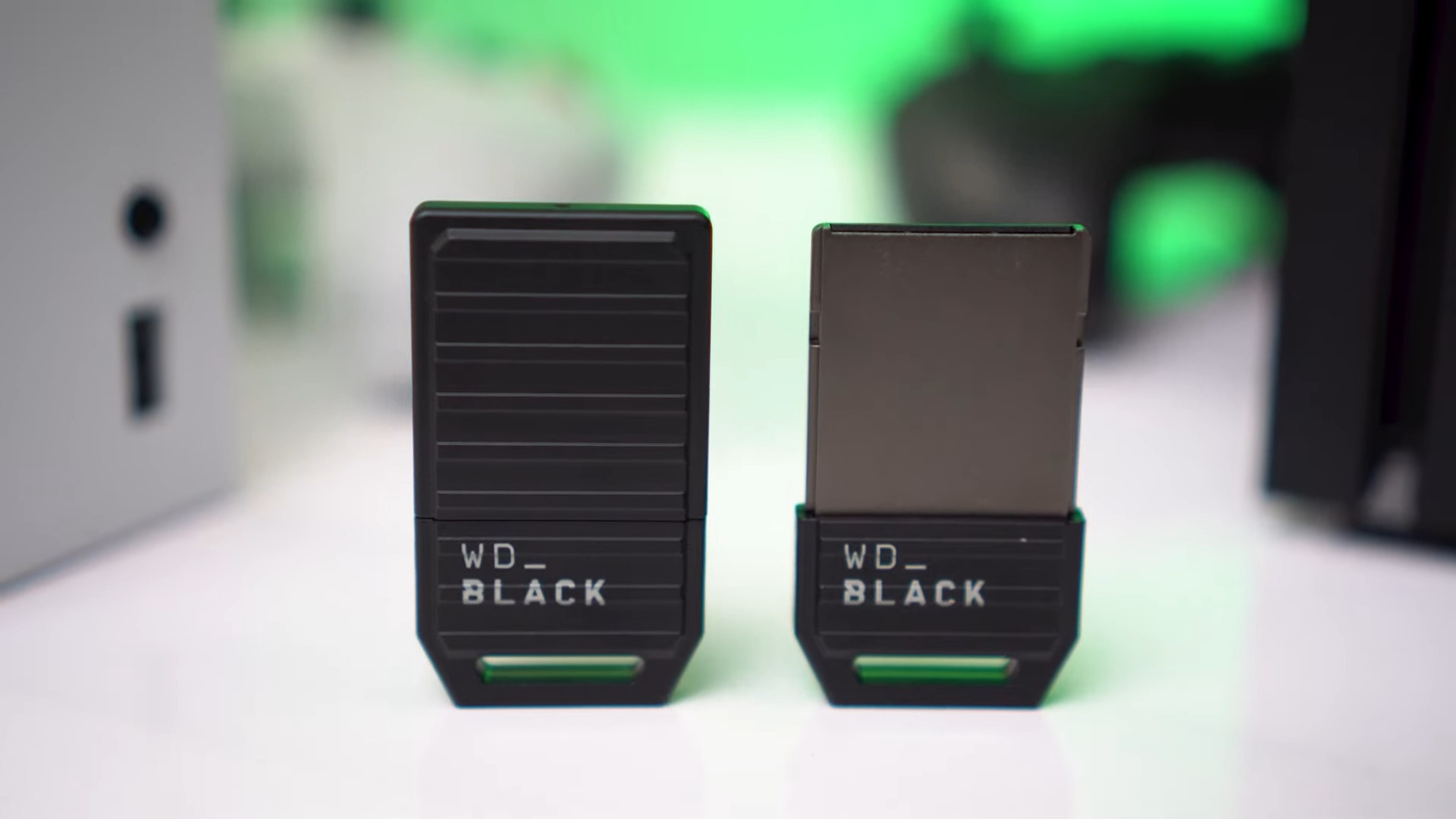
If you want the best from your storage, and a real one-and-done solution then the C50 or Storage Expansion Card from WD Black and Seagate respectively are the way to go. However, these often have an imposing price tag so it might be beyond some budgets. That’s why the value-for-money that external hard drives still offer is an excellent option to have and still makes them an attractive and viable option in 2024.
Buy an Xbox Expansion Card if...
You want the best performance
If you must have a fast drive that can offer top speeds but also store and play games directly then an expansion card is the option to go for.
You have a healthy or flexible budget
The price of admission for the expansion card is greater than regular externals, but if you have the budget then you won’t regret committing to it given the performance and versatility you’ll get.
You don’t need a huge amount of extra storage
If you only require up to 2TB of external storage, then we’d recommend considering the expansion cards. The extra performance you get for your investment means that the smaller sizes are a fair trade-off.
Buy an external hard drive if...
You still use an Xbox One
If you’re primarily still using an Xbox One, or you use one when you travel or as a secondary console, then an external hard drive that can store and play Xbox One games directly is likely the better option.
You have a smaller budget
The bang-for-buck value for money you get with regular USB external hard drives is exceptional, especially with the older HDD variants so take this route if you’re on a smaller budget and want to maximize how far it stretches.
You need a vast capacity
External hard drives come in far greater capacities than the expansion cards so if you need anything larger than 2TB (and anything up to a massive 16TB) then go for an external.
If you’re looking for storage options for the other consoles, check out our guides to the best SD cards for Switch, the best SSD for PS5, and the best PS5 external hard drives.

Rob is the Managing Editor of TechRadar Gaming, a video games journalist, critic, editor, and writer, and has years of experience gained from multiple publications. Prior to being TechRadar Gaming's Managing Editor, he was TRG's Deputy Editor, and a longstanding member of GamesRadar+, being the Commissioning Editor for Hardware there for years, while also squeezing in a short stint as Gaming Editor at WePC just before joining TechRadar Gaming. He is also a writer on tech, gaming hardware, and video games but also gardens and landscapes, and has written about the virtual landscapes of games for years.